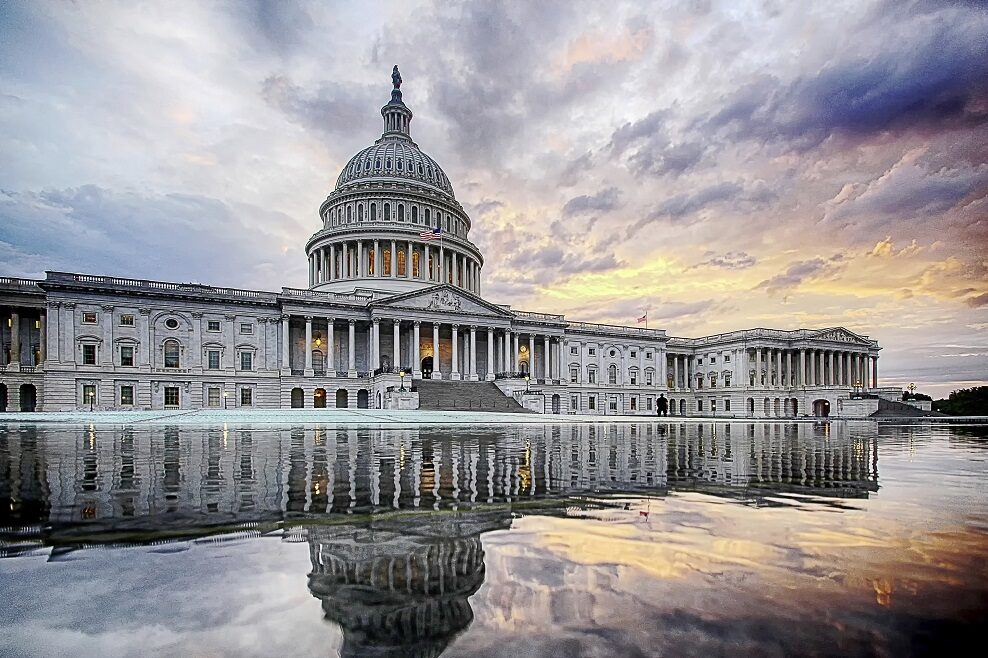© 2024 CSRXP- All Rights Reserved

CSRxP: PBMs Cut Through The Big Pharma Blame Game On Capitol Hill
Apr 9, 2019
Washington, D.C. – The Campaign for Sustainable Rx Pricing (CSRxP) released a statement Tuesday following testimony from five executives representing pharmacy benefit managers (PBMs) before the U.S. Senate Committee on Finance on the issue of drug pricing.
“Today’s testimony demonstrated Big Pharma’s blame game targeting PBMs is a mile wide and an inch deep,” said CSRxP executive director Lauren Aronson. “Big Pharma has targeted others in the drug supply chain as part of a broad strategy to evade any culpability for the crisis of rising prescription drug costs in America, when they and they alone, control the list price.”
“The testimony we heard today underscores the critical role PBMs play in securing savings for patients, promoting safety in the system and providing an important check on the outsized pricing power of Big Pharma,” Aronson continued. “Policymakers in Washington should reject the Big Pharma blame game and focus on market-based solutions that target the anti-competitive tactics and price-gouging of large drug makers.”
Several senators recognized the effort Big Pharma has put into deflecting blame by targeting PBMs and how the root of the issue of rising prescription drug prices is the list price – that is set by drug makers, and drug makers alone.
Senator Chuck Grassley (R-IA), U.S. Senate Finance Committee Chairman: “We know that drug companies set the list price. We now today turn our attention to PBMs. These organizations negotiate with the drug companies, as well as pharmacies, to arrive at a price for a drug and its ultimate cost. This system of private entities negotiating is what I envisioned as an author of the Part D program of Medicare. I still believe that this is absolutely the right approach. I oppose any effort to undo the non-interference clause currently in the statute.”
Senator Sheldon Whitehouse (D-RI): “So, it’s got to be interesting to you all to witness how the pharmaceutical industry has been able to take pressure on their pricing and turn it into, with political jiu-jitsu of an almost magical variety, pressure on their greatest adversary, the most powerful force for pushing prices down … that’s quite a trick on their part.”
Senator Sherrod Brown (D-OH): “To recap, PBMs do not set drug prices. Forcing you to change the way you do business, as the administration’s rule would, would not change that fact. And while the rule might impact the small percentage of drugs in Part D that receive a rebate, it does nothing to lower cost, as your answers suggest, of the other 90 percent of prescriptions you fill. Most importantly, absolutely nothing in the proposed rule would require Secretary Azar’s former employer, or any other pharma company, to lower the price of insulin or any other drug. It’s important to establish that to thank you for that.”
PBM executives who testified before the Senate Finance Committee Tuesday explained how their role achieves savings for patients and consumers.
Mike Kolar, Prime Therapeutics: “Our business model is based upon delivering the lowest net cost on prescription medicines and the lowest overall costs of care for the benefit of our plans and ultimately their members. Getting the right drug for the right patient at the right time at a cost as affordable as possible in the context of their insurance benefit helps to ensure sustainability and optimal health outcomes … PBMs are often misperceived as transactional middlemen. This entirely ignores the immense value we bring by using deep pharmacy expertise to ensure clinically appropriate drug use and to drive improved safety, quality outcomes and savings.”
The executives also laid out how eliminating rebates, a critical tool to negotiate lower prices, would increase costs and how Big Pharma uses anti-competitive tactics to drive prices higher.
John Prince, OptumRx: “In terms of the value we deliver, we save our clients about $1,600 per person in value each year … we negotiate a better price for our consumers. We do other types of drug utilization review, but if you lost the tool for some type of mechanism for controlling for rebates, that would actually take a lot of value out of the system and increase costs… We know consumers have felt the manufacturers list price increases in the form of higher out of pocket costs … Manufacturers continue to increase the list and net prices at unsustainable rates because the lack of meaningful competition allows them to… Manufacturers also engage in anti-competitive practices such as pay for delay deals, evergreening their patents.”
And how a lack of competition in the pharmaceutical industry, particularly with biosimilars, keeps prices high.
Steve Miller, Cigna: “One of the biggest problems facing the industry is the lack of biosimilars that have come to the market place … shortening the period of exclusivity could make a huge difference in bringing these biosimilars into the marketplace and so we are strongly supportive and have been for over a decade to get biosimilars out there and when they are there we often take great advantage of them to lower the costs.”
Derica Rice, CVS Health: “We absolutely are supportive of bringing more competition into the marketplace. We’ve seen even in the space of insulin, when we’ve been able to have that competition of biosimilar introduction, we were actually able to reduce for the members’ out of pockets – their burden – by nine percent and so having more competition like that on the market would be extremely beneficial.”
William Fleming, Humana: “We need more competition. We love biosimilars, when they do come out we try to put them in parity position with the originator drug to allow the biosimilar to compete, but the big problem we have today is we need more. More competition allows prices to come down for the same therapeutic area.”
